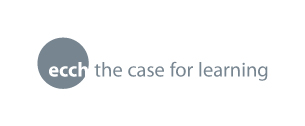The Pears Business Schools Partnership is a collaboration between Cranfield School of Management, London Business School, Said Business School and Pears Foundation to stimulate student engagement with the themes of sustainable and responsible business in society and to take into their leadership careers a desire, a willingness, to seek out and implement innovative models for change.
The Partnership has commissioned the development, publication and teaching of twenty seven case studies on the value that businesses and business leaders bring to society, and an annual lecture by a leading business figure who is using the power of business to make a positive difference.
Last night I attended the 2nd annual Pears Business Schools Partnership lecture delivered by Sir Andrew Witty, CEO of GlaxoSmithKline, who delivered a compelling call for businesses to connect more strongly with fundamental social and ethical imperatives.
Sir Andrew sees this as an important time to consider the intersection of business with society. Why? Because trust in the private sector has eroded and corporations have become more de-humanised over the past twenty years. In order to redress the balance, businesses need to place the values of the individual at the heart of everything they do – staff, customers, suppliers and shareholders – and align themselves with lasting personal, social values. Those that do are more likely to be more successful and sustainable and to have a more authoritative voice on key issues. And the key player is the CEO, who must have the courage to "...stand in front of the mirror and ask ourselves – what’s the most we can do to make a positive difference, to do better, be responsible, to keep challenging and demanding better?"
At ecch we're delighted to be playing a small part in disseminating the cases produced under the partnership. Sir Andrew Likierman, Dean, London Business School, said last night: “It is inspiring to hear Sir Andrew Witty outline the important role businesses can play in contributing to our society, and emphasise the business benefits of doing so. At London Business School, we have always believed that good corporate responsibility and ethical business go hand-in-hand with successful business practice, and it has long been part of the core curriculum in our MBA programme. The Pears Business Schools Partnership, through the rich case studies it is producing, is helping that aspect of our work even further.”
Nine case studies are being written by each Business School and we will be assessing their impact in the classroom. The case studies feature companies such as Innocent, Proctor & Gamble and UBA Group, and examine the diverse and imaginative ways businesses contribute to society and generate positive value as a result of their work. All the case studies will be published online and in a summary brochure later this year.
